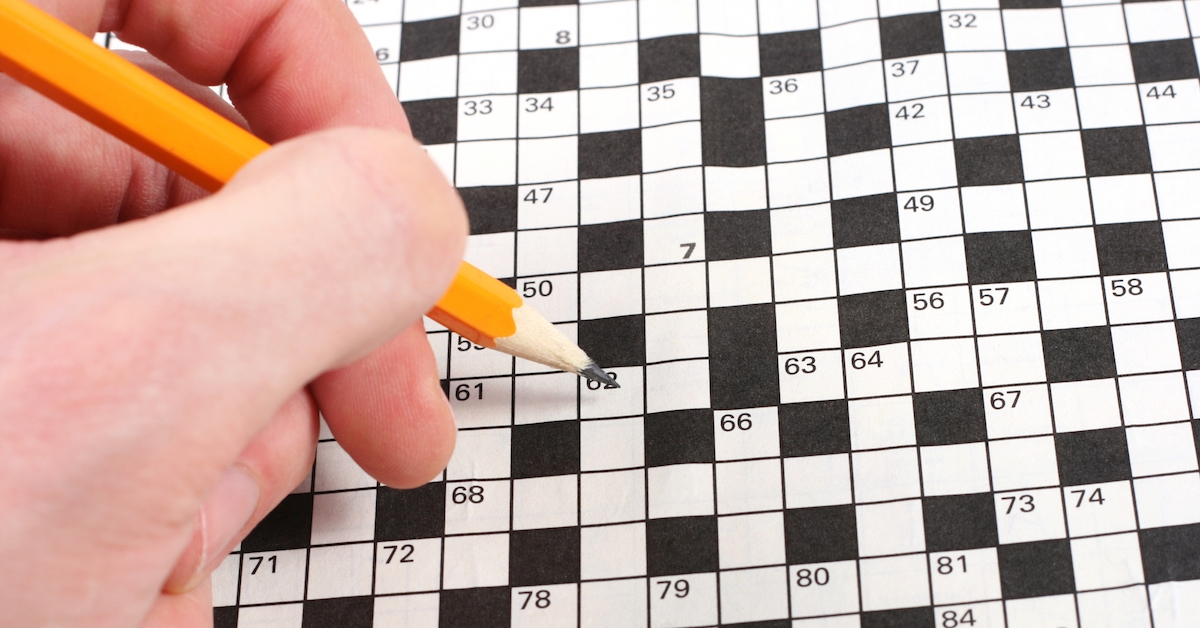Many older adults are trying to slow down memory and cognitive loss by stimulating their brains with teasers, crossword puzzles, or Sudoku. Some even take up cognitive training programs.
One such lady said to her doctor: “Every day I’m doing everything I can to stop dementia. I’m not wasting my time am I?”
Her doctor encouraged her to keep at it.
But scientists are skeptical. They say there’s limited evidence this will make a difference. A new study agrees, but the researchers found a very good reason to engage in these brain challenges in anyway. . .
Use it or Lose it
Exercising the mind to maintain cognitive abilities — the idea that we should think of the brain like a muscle where you “use it or lose it” — is widely accepted by both the public and health-care professionals. Some studies do support the idea.
For instance, one found the more a person liked to read, the more likely they were to retain cognitive abilities with age. Another reported that reading or playing board games or musical instruments at least twice a week lowered the risk of dementia. In a third study, it emerged that engaging in intellectual activities had a positive effect on verbal fluency later in life.
But clinical scientist Roger Staff and colleagues at Aberdeen University, Scotland wanted to explore this in more detail.
Maybe both brain-challenging activities and the retention of cognitive abilities later in life have something in common that these studies didn’t take into account, like better education or intelligence early in life. If this was the case, it could mean there was no genuine cause and effect relationship, and to “use it” might not make any difference.
So for their study, published in the British Medical Journal in December, they looked at 498 people, all born in 1936, who took a group intelligence test when they were 11 years old.
In 2000 they were given various cognitive and memory tests which were repeated up to five times over the next 15 years until they were 79 years old. They also filled out a questionnaire regarding the various ways they engaged their brains.
From the data, the researchers were able to factor in the effect of childhood intelligence, duration of formal education and crystallized intelligence (the ability to use learned knowledge and experience.)
Supports Cognitive Reserve
Comparing the people who did puzzles and other forms of intellectually challenging activities with those that didn’t, the scientists found both groups showed similar declines in mental ability. That’s the bad news.
The good news is those who regularly taxed their brains, particularly in problem solving activities, had higher mental abilities in the first place. This mean their cognitive decline started at a higher point, so they stayed mentally well for longer. Potentially this could add many additional years before any decline begins.
Roger Staff commented, “The results indicate that a lifetime of engagement lifts you to a high point from which you decline…Starting from a high point will mean that the threshold at which you are considered impaired will be farther into the future.”
So the study did not support the “use it or lose it” theory. Brain function will be lost with age whether or not you’re a puzzler.
But it did support the concept of cognitive reserve. This is the brain’s ability to improvise and find alternative ways to get things done.
A higher cognitive reserve comes from regularly challenging the brain. This creates more connections between neurons, allowing the brain to compensate for any breakdown in its wiring in older age.
So whether it’s crosswords, problem solving or brain training, it really does make a difference.







